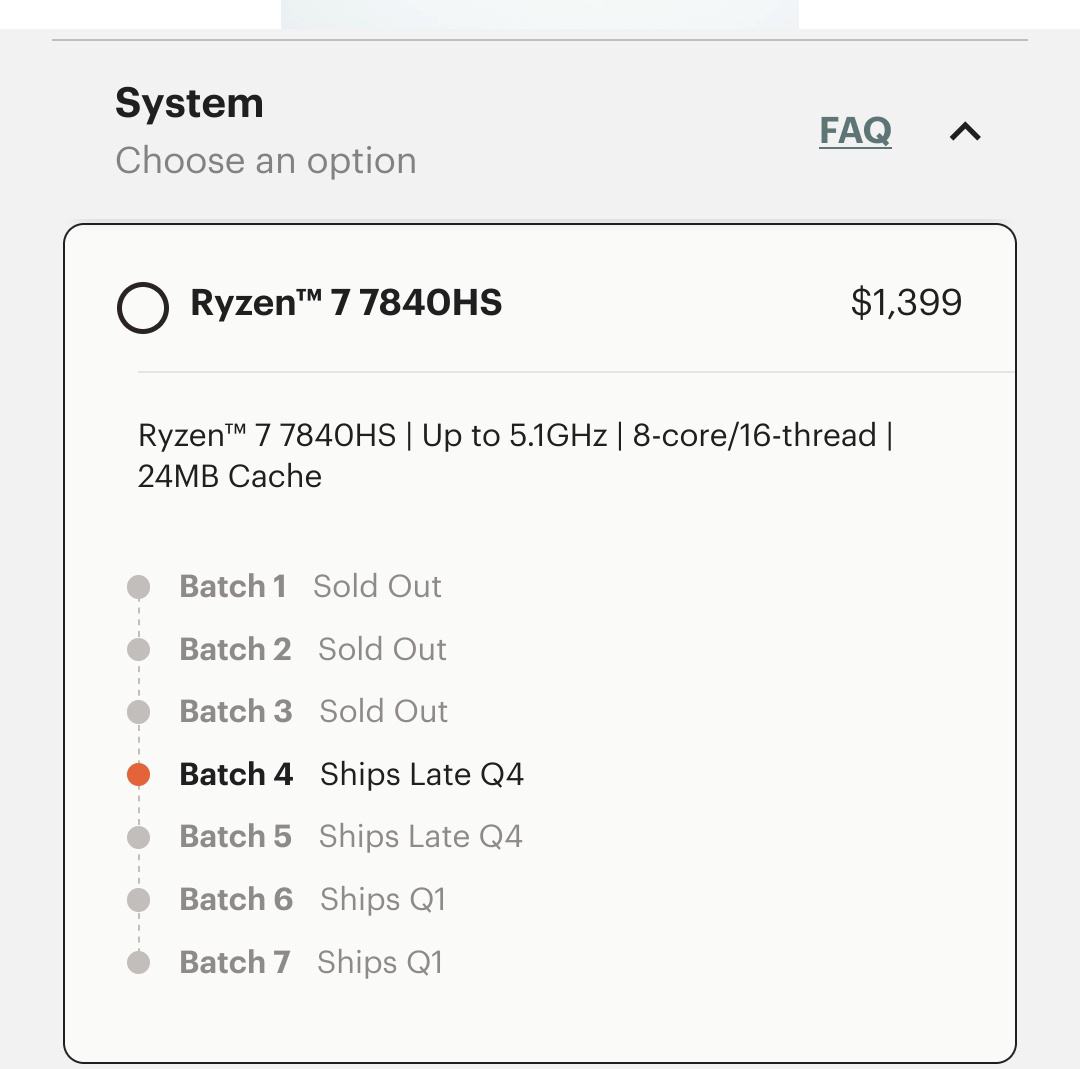this post was submitted on 18 Jul 2023
12 points (92.9% liked)
Technology
59300 readers
4791 users here now
This is a most excellent place for technology news and articles.
Our Rules
- Follow the lemmy.world rules.
- Only tech related content.
- Be excellent to each another!
- Mod approved content bots can post up to 10 articles per day.
- Threads asking for personal tech support may be deleted.
- Politics threads may be removed.
- No memes allowed as posts, OK to post as comments.
- Only approved bots from the list below, to ask if your bot can be added please contact us.
- Check for duplicates before posting, duplicates may be removed
Approved Bots
founded 1 year ago
MODERATORS
you are viewing a single comment's thread
view the rest of the comments
view the rest of the comments

I do badly want to like these.. but I don't see the point.
Repairability wise mid range ThinkPad is nearly as good. Only major difference is I think Framework claims they will release schematics... and as someone who actually does component level repairs I've seen promises like this work I've or twice, but then they stop maintaining their data or pays get hard to get rendering the gesture null.
Upgrade wise... I switch machines every 4 to 6 years... at which point the chassis has a bit of wear and tear.
Spec wise I buy what I need and add a little headroom with the ThinkPad.
Spare parts are good for ThinkPad and Lenovo actually has component replacement guides that no one seems to mention or know about.
And when I do upgrade I appreciate having a complete spare machine.
I think it's also not unreasonable to assume my style of buying and upgrading is not uncommon.
This leaves the Framework very few hardware advantages and nil price advantages.
I still think they're a great idea, but I don't see any practical benefit over a sensible alternative.
Genuine question... Have I missed anything?
Well, framework has one cool side-effect of their repair-friendly approach: their laptop mainboard can be used as an SBC. I've seen a few projects use it in this way, and I believe they even sell an official plastic case for it. It's a well-documented piece of computer hardware that is regularly refreshed and can be fitted easily into slim chassis.
Oh, and another cool thing is that their screens have magnetic bezels. ThinkPads are a PITA to fix if you just want to replace an LCD panel; framework makes it trivial to keep the upper chassis and only replace the part that's actually broken. That's the real pitch with Framework: replace anything easily and upgrade your computer for only the cost of the mainboard or socketable component. Some of their newer devices have a socketable PCIe expansion bay, which could be used for things like socketable GPU upgrades.